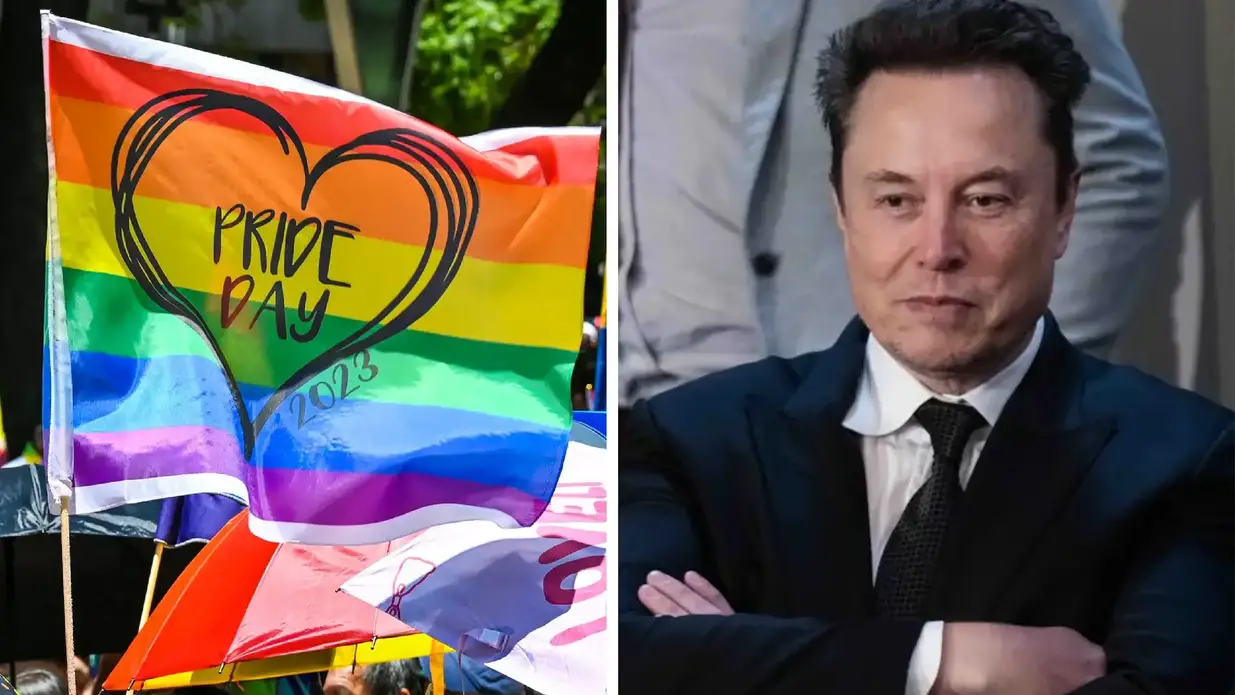The social media platform X, formerly known as Twitter, has made a controversial move by permanently blocking certain Pride-related content. The decision, justified by the platform as a measure to “protect kids,” has ignited widespread debate among users, advocacy groups, and industry experts. While some view this action as a step toward safeguarding children, others see it as a troubling precedent of censorship that undermines LGBTQ+ visibility and rights.

Here’s an in-depth look at the decision, the arguments on both sides, and its potential implications for digital spaces and the LGBTQ+ community.
The Announcement and Its Immediate Impact
X’s decision was announced through an official statement that emphasized the company’s commitment to protecting younger audiences from what it deemed “inappropriate content.” Although the platform did not specify the exact criteria used to block Pride-related material, many LGBTQ+ creators and organizations reported that their posts were flagged, restricted, or removed entirely.
This move came as a shock to many, especially given the platform’s history of serving as a space for marginalized voices. For years, X has been a vital tool for the LGBTQ+ community to connect, share experiences, and advocate for equality. The abrupt restriction has left many users questioning the platform’s motives and commitment to inclusivity.
Justifications Cited by X
In its statement, X framed the decision as part of a broader strategy to create a safer online environment for children. The platform argued that some content, even if intended for advocacy or education, might expose minors to themes deemed unsuitable.
This reasoning has resonated with a portion of the user base, including parents and child safety advocates, who argue that social media companies bear a responsibility to shield children from certain topics. According to supporters of the move, this policy reflects a cautious approach to balancing free speech and digital safety.
Backlash from LGBTQ+ Advocates
Unsurprisingly, the decision has been met with fierce criticism from LGBTQ+ rights groups, creators, and allies. Critics argue that blocking Pride-related content under the guise of “protecting kids” perpetuates harmful stereotypes, suggesting that LGBTQ+ identities are inherently inappropriate or dangerous for young audiences.
Advocacy groups have also pointed out that X’s policy disproportionately targets marginalized communities. They highlight that educational and supportive content about LGBTQ+ issues plays a crucial role in combating discrimination and fostering understanding among younger generations. Silencing these voices, they argue, does more harm than good.
Prominent activist group GLAAD issued a statement condemning the move, calling it “an alarming act of censorship that reinforces prejudice and erases essential narratives from public discourse.”
The Legal and Ethical Questions
The decision raises important legal and ethical questions about the role of social media platforms in moderating content. While platforms like X have the right to establish guidelines, the line between content moderation and censorship remains blurred.
Critics have also questioned whether this decision aligns with international laws on freedom of expression and anti-discrimination. LGBTQ+ activists are calling for greater transparency about how content policies are developed and enforced, emphasizing the need for community consultation in decisions that disproportionately affect minority groups.
Broader Implications for Digital Spaces
The blocking of Pride-related content on X could have significant ripple effects across the digital landscape. Other platforms may follow suit, leading to a chilling effect on free speech and LGBTQ+ advocacy online. This raises concerns about the future of inclusivity and representation in social media spaces, which have long served as critical hubs for activism and support.
For younger LGBTQ+ individuals, the decision could have profound consequences. Many rely on online resources to explore their identities, find community, and access support. Restricting access to these materials might leave them feeling isolated or unsupported, undermining efforts to combat bullying, discrimination, and mental health challenges.
Public Reactions and Call to Action
The public response to X’s decision has been polarized. Some users applaud the move, citing a need for stricter controls over online content. However, a growing number of voices are urging the platform to reconsider its stance, advocating for a more nuanced approach that balances child safety with the need for representation and inclusivity.
LGBTQ+ organizations and allies are calling for users to speak out against the policy. Campaigns





